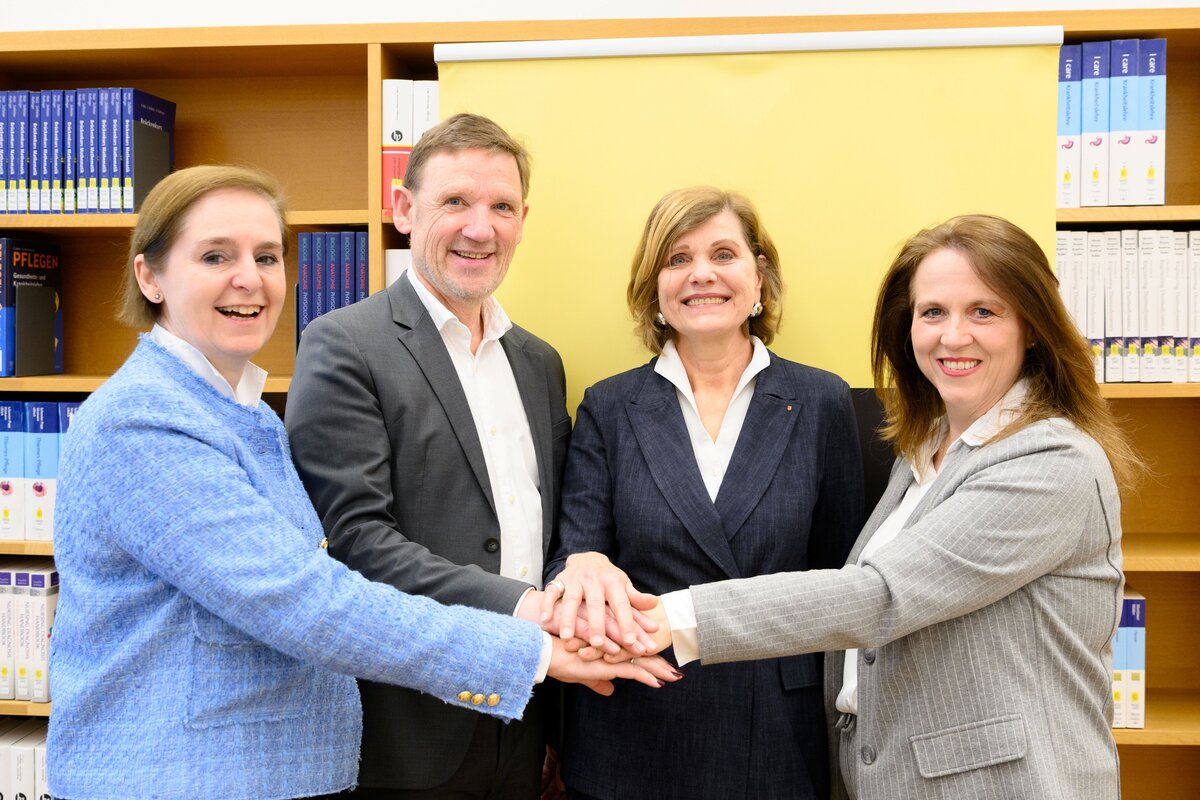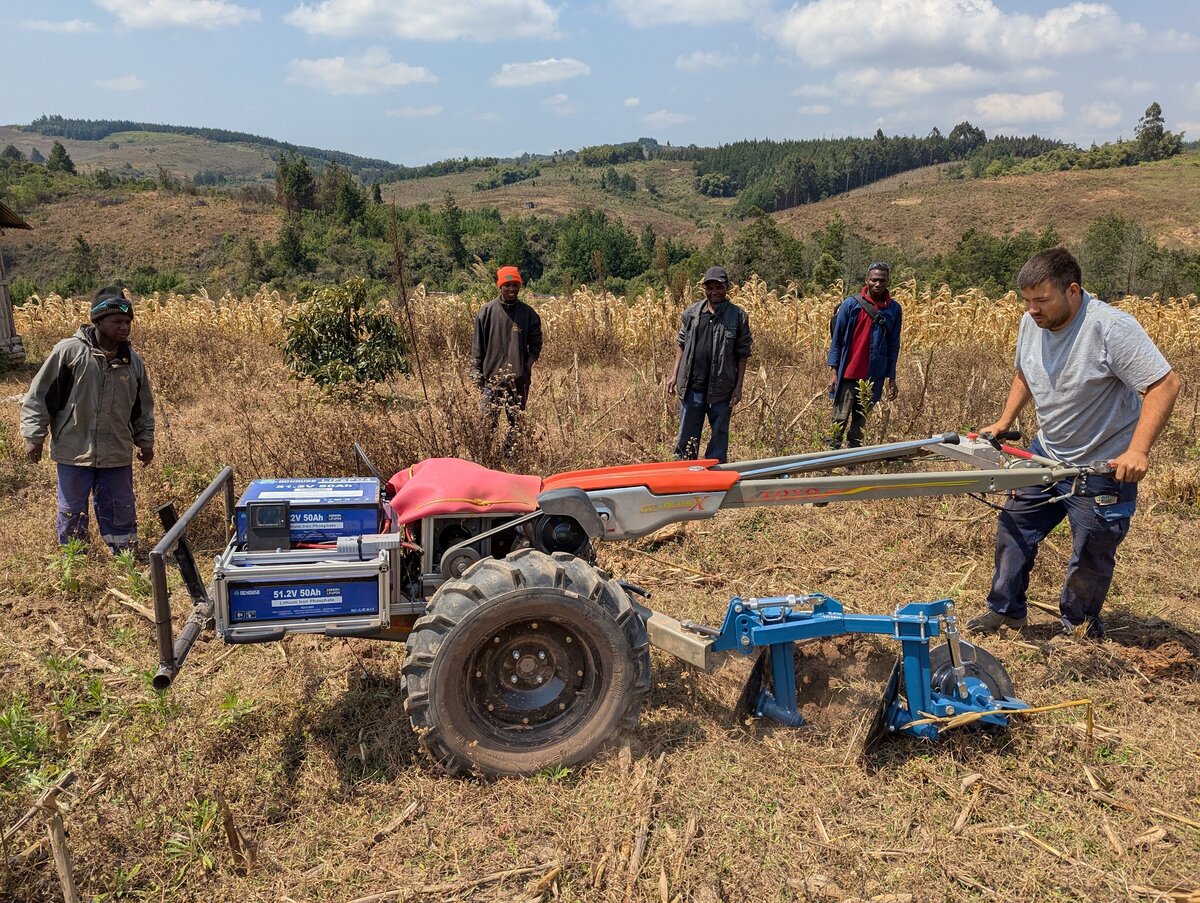"We need to think differently about leadership"
26.09.2025Your keynote will focus on empowerment as a functional principle of sustainable organizations. Leadership plays an important role in this. However, hierarchies are becoming less important and new leadership concepts are needed. What could these look like?
Zacher: The leadership of the future should enable decisions to be made in a more decentralized, faster and more competent manner. This is because the hierarchy is no longer able to fully assess and decide on all relevant issues in this complex world. In future, it will therefore be more important to better distribute the existing power of the hierarchy to the most capable employees and at the same time limit it to a limited period of time. This will enable them to make the most promising decisions more quickly.
So the leadership role is changing?
Zacher: It's about empowerment and empowering employees and, above all, teams. The role of leadership is changing fundamentally as a result. It focuses more on enabling, supporting, networking, reinforcing, reflecting, empowering, constantly changing the structures and framework conditions, i.e. working on the system. Likewise, the manager is to a certain extent the referee when it comes to interpreting rules and adapting and changing the checks-and-balances logic of the system. In order to implement these new leadership concepts in organizations, a cultural change is usually required.
How can this be achieved?
Zacher: It is important to create an understanding among employees and managers alike that this is not about following a trend. Rather, the organization needs to work out what the most serious challenges of the future are and how existing problems and unresolved conflicts are hindering the development of the organization in rounds of talks, discussions and workshops. For many, such an approach is unusual, as these issues often remain unaddressed. However, if they are addressed in an effective and well-considered manner, the discussion can be directed towards possible elementary levers.
What would be the first steps in terms of cultural change?
Zacher: Many teams quickly identify the aspect of leadership and the need for a different kind of collaboration. This often awakens a sense of urgency, which makes it possible to start experimenting with new methods, Engineering and Technology and tools. This makes it clearer and more concrete what the future holds, and teams begin to practise and learn. Basically, this cultural change can only be designed in a participative, inclusive and fully transparent process, as these are also the basic principles of the subsequent target state of leadership and interaction between the teams.
The goal for many companies is to move towards a high-performing organization. Sports teams are also high-performing organizations.
From your experience, do you see any connections or similarities to companies that are successful? If so, what would they be?
Zacher: Yes, absolutely. It is now essential for sports teams to consider and design topics such as psychological safety, mental health, mindfulness and many other psychological perspectives as an elementary component. This changes everyday training, as well as the coaching and support team. Fear-free spaces lead to expanded learning zones, which in turn lead to higher performance standards, more ambitious goals and ultimately higher performance.
How can companies or organizations also integrate these principles?
Zacher: Many things need to be thought about differently. Managers in particular need to acquire many skills from trainers or coaches. This enables them to develop both empathetic, democratic and psychological, coaching leadership skills. The principle of training and the consistent demand for athletes to "get better" can also be found in new team routines, changed training scopes, changed meeting structures and methods. Above all, the relationship to the concept of conflict is changing - the regular questioning of structures, processes, content and team dynamics is becoming the new rule.
If leadership is to be rethought - does it also require new leadership development programs? What should the focus be on here?
Zacher: In most cases, the technical and methodological skills of managers and employees are well developed. However, activity and action skills as well as personal and social skills, such as reflection and communication, are not equally well developed or trained. In my experience, this is where the focus should be, as this is where the greatest leverage lies. The development of the organization is often hindered by the fact that conflicts are not successfully moderated, which means that problem areas are often not made transparent and certainly not transformed into solution areas. Here it is very important to sharpen the demands on leadership. For me, the image that needs to be developed here is that of the manager as both coach and pace-setter.
Does the term "leadership development" still fit?
Zacher: Only in the broadest sense, because empowering teams means that almost every person is given power and takes on leadership to a certain extent and for certain periods of time. It is therefore also important to enable not only managers to acquire these skills, but to make them available to all employees.
What is important to you personally in your leadership work?
Zacher: It can be summarized very well under the term growth mindset. In my leadership role, I want to enable people, teams and the organization to grow at the same time. I am guided by my positive, responsible view of people. As a result, I am convinced that many employees still have undiscovered potential that they are often not (yet) confident about. Supporting them, challenging them and, above all, creating successful team and organizational structures that also promote Business and Management success is the driving force behind my actions.
Thank you very much for the interview.
Curious to learn more?
For a deeper insight into New Leadership and the challenges of digital transformation, take a look at the Master's degree programme in International Business Administration – Sustainable Management, with a specialisation in People, Organisation & Transformation.
All the details are available ▷ here.



